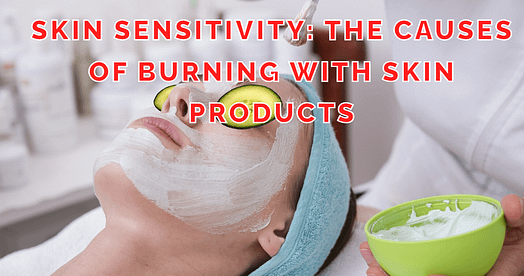
Understanding and Managing Sensitive Skin
Introduction
Sensitive skin can be difficult to define and manage, but it is a real experience for many people. If you’ve ever felt itching, irritation, or burning after using a skincare product, you may have sensitive skin. This doesn’t mean there’s something wrong with your skin, but rather that a product you’re using might not be suitable for you.
What is Sensitive Skin?
Sensitive skin is generally described as skin that easily becomes irritated. Symptoms may include:
- Itching
- Burning
- Pain
- Redness
- Swelling
These symptoms can be triggered by skincare products, environmental factors, or underlying health conditions.
Causes of Sensitive Skin
There isn’t a single cause of sensitive skin. The triggers can vary greatly from person to person. Here are some common causes:
1. Damage to the Skin’s Protective Barrier
- The skin acts as a barrier against irritants and toxins. When this barrier is compromised, the skin becomes more susceptible to irritation and moisture loss, leading to dryness, redness, and itching.
2. Soaps and Cleansers
- Many soaps and cleansers can strip the skin of its natural oils, making it more prone to sensitivity, similar to how dish soap removes grease from dishes.
3. Exfoliating Skincare Products
- Products containing acids, retinoids, and retinols can exfoliate the skin but may also cause irritation by stripping away the skin’s protective layer.
4. Underlying Skin Conditions
- Conditions like eczema, acne, and skin allergies can damage the skin barrier, leading to increased sensitivity.
Identifying the Cause: Eczema, Allergic Reactions, and Autoimmune Conditions
Sensitive skin can sometimes be a sign of an underlying condition. Here are some possibilities:
Eczema
- Symptoms: Dry, scaly, itchy, and sensitive skin.
- Commonly Affected Areas: Hands, neck, elbows, knees.
Skin Allergies (Contact Dermatitis)
- Allergic Contact Dermatitis: Immune system reacts to ingredients in products, causing itching, redness, and sometimes blistering.
- Irritant Contact Dermatitis: Caused by direct exposure to toxic substances, leading to skin irritation.
Other Health Conditions
- Diabetes: Can cause dry, flaky, and sensitive skin due to nerve involvement.
- Autoimmune and Thyroid Conditions: May also lead to sensitive skin.
Are There Nutritional Deficiencies Linked to Sensitive Skin?
Severe deficiencies in nutrients like protein, zinc, iron, and vitamins can affect skin health, but the symptoms are usually more pronounced than just sensitive skin. To support healthy skin, focus on a diet rich in:
- Vitamin C (found in tomatoes, sweet peppers, kiwi, citrus fruits)
- Polyphenols (found in grapes, pomegranates, berries)
- Beta-Carotene (found in cantaloupe, carrots, mangoes, leafy greens like kale)
- Soybeans, nuts, seeds, oily fish, and water are also beneficial.
How to Treat Sensitive Skin
Managing sensitive skin often involves identifying and avoiding triggers. Here are some steps you can take:
Self-Care Tips
- Cold Compresses: Reduce swelling and burning.
- Oatmeal or Epsom Salt Baths: Help repair the skin barrier.
- Antihistamines: Decrease itchiness.
Prescription Treatments
- Topical Corticosteroids: Effective for treating skin allergies, irritation, and eczema, but should be used only as needed due to potential long-term risks.
Takeaways
- Sensitive skin is a common and real issue that can be managed with proper care and attention.
- Identifying the triggers is key to managing symptoms.
- Consult with a healthcare provider if you continue to experience issues despite self-care measures.
References
[youtube_video]s5mKoCZ-P1c[/youtube_video]
Get ready to uncover the truth behind common skincare myths in this compelling video! In “Busting Skincare Myths Part One,” we dive deep into the world of #skincare to debunk popular misconceptions. Discover expert advice and effective #skincaretips that will revolutionize your #skincareroutine. From sorting fact from fiction to exploring the impact of #skinwhitening trends, this episode will change the way you approach your beauty regime. Join us in separating myths from reality as we get to the bottom of what really works in achieving healthy, glowing skin. Stay tuned for more myth-busting revelations!
#skincare, #mythbusters, #skincare, #skincaretips, #skincareroutine, #skinwhitening